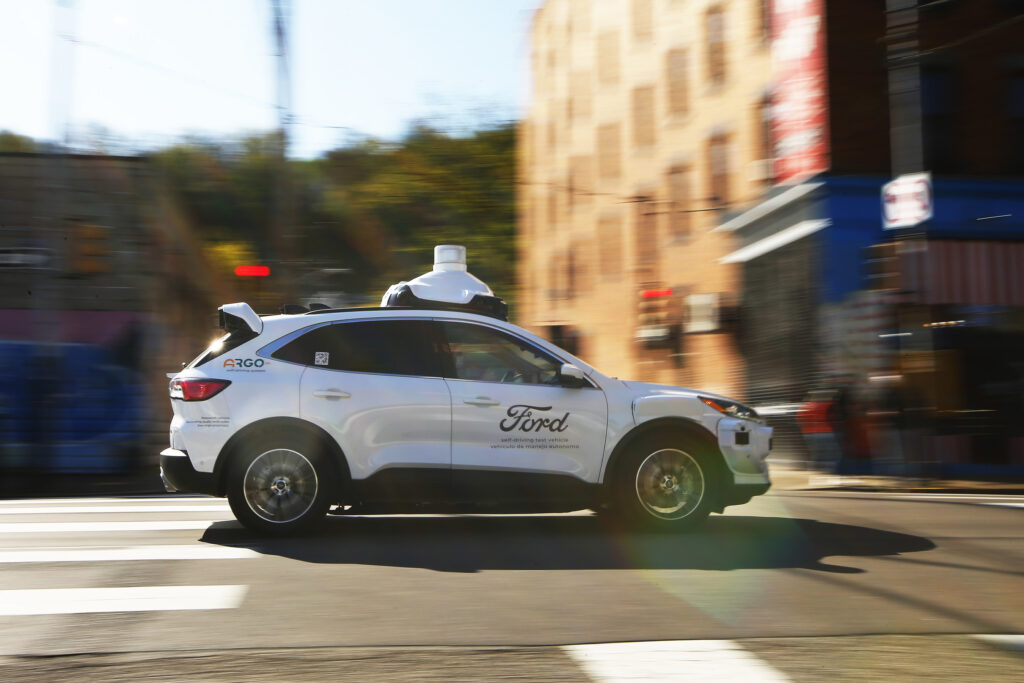In a bid to speed the commercialisation of its autonomous delivery and ride-hail services, global self-driving technology company Argo AI has added a new sensor to its Argo Self-Driving System (SDS). The company claims Argo Lidar can detect the most difficult-to-see objects from farther away and with more precision, ensuring SDS is now capable of 360° awareness day or night and can safely drive on busy city streets, suburban neighborhoods and at highway speeds.
This breakthrough in autonomous vehicle technology was first enabled by Argo’s 2017 acquisition of Princeton Lightwave, following the latter’s development of an innovative form of long-range lidar. The result is a lidar that Argo AI claims delivers the industry’s longest-distance sensing range capability of 400m, with dark-object detection for safe highway driving. Argo Lidar also offers ultra-high resolution perception, providing the photorealistic imaging required to identify small objects for safe operation on complex city streets.
“Argo Lidar takes us to a whole new level of self-driving technology, unlocking our ability to power both delivery and ride-hail services,” said Bryan Salesky, founder and CEO of Argo AI. “The Argo Self-Driving System delivers the safety, scale and service experience that businesses want and their customers demand, especially coming out of the pandemic.”
Ready to scale
Argo AI believes SDS, combined with its fleet dispatch infrastructure and operations experience, translates into clear advantages when it comes to commercialization, including:
Safe operations in cities, suburbs and on highways enables connections from warehouses to urban and suburban routes for middle- and last-mile delivery, or service to the most in-demand ride-hailing routes to and from airports; scaled operations based on extensive testing and development in six US cities, with additional cities coming online this year, as well as expansion into Europe; and service experience, including address-to-address routing within urban and suburban areas of operation, maximizing effectiveness for deliveries or commuters.
Through deep collaboration with automotive partners Ford Motor Company and Volkswagen Group in the technology integration and development of high-quality, commercial-grade self-driving vehicles, Argo says it can meet the durability requirements for maximizing commercial fleet uptime and improving operations and customer satisfaction.
“We have unparalleled autonomous driving technology and operations capabilities,” continued Salesky. “Proving out these abilities every day, across six cities from our nation’s capital to Miami to Silicon Valley, we are ready to enable the next phase of growth for delivery, retail and ridesharing partners.”
Geiger-mode sensing
Alongside custom-designed sensors and high-performance computing, Argo Lidar is the centerpiece of the Argo SDS. It is designed to handle the most complex aspects of human driving, such as seeing the darkest of black-painted vehicles – those that reflect less than 1% of light even at long range and in the pitch blackness of night; safely navigating left-hand turns onto roads with oncoming high-speed traffic by utilizing a 360° field of view; managing instant transitions from darkness to bright light, such as when entering and leaving a tunnel, which often temporarily blind human drivers; and distinguishing small, moving objects such as animals from vegetation and static objects.
The innovation behind Argo Lidar is known as ‘Geiger-mode’ sensing. Argo AI’s proprietary Geiger-mode lidar has the ability to detect the smallest particle of light – a single photon – and is key to sensing objects with low reflectivity. This, combined with higher-wavelength operation above 1,400 nanometers, gives Argo Lidar its unique capabilities, including longer-range, higher-resolution, lower-reflectivity detection and full 360° field of view – all from a single sensor.
The Argo AI hardware development team is now working with a highly experienced contract manufacturer for series production of the new lidar sensor. The first batch of Argo Lidar sensors is already supporting on-road testing of Argo’s self-driving test vehicle fleet. Soon, volume production plans with Ford and Volkswagen Group will lead to the widespread commercialization of autonomous delivery and ride-hail services, according to the company, which is headquartered in Pittsburgh, Pennsylvania.


